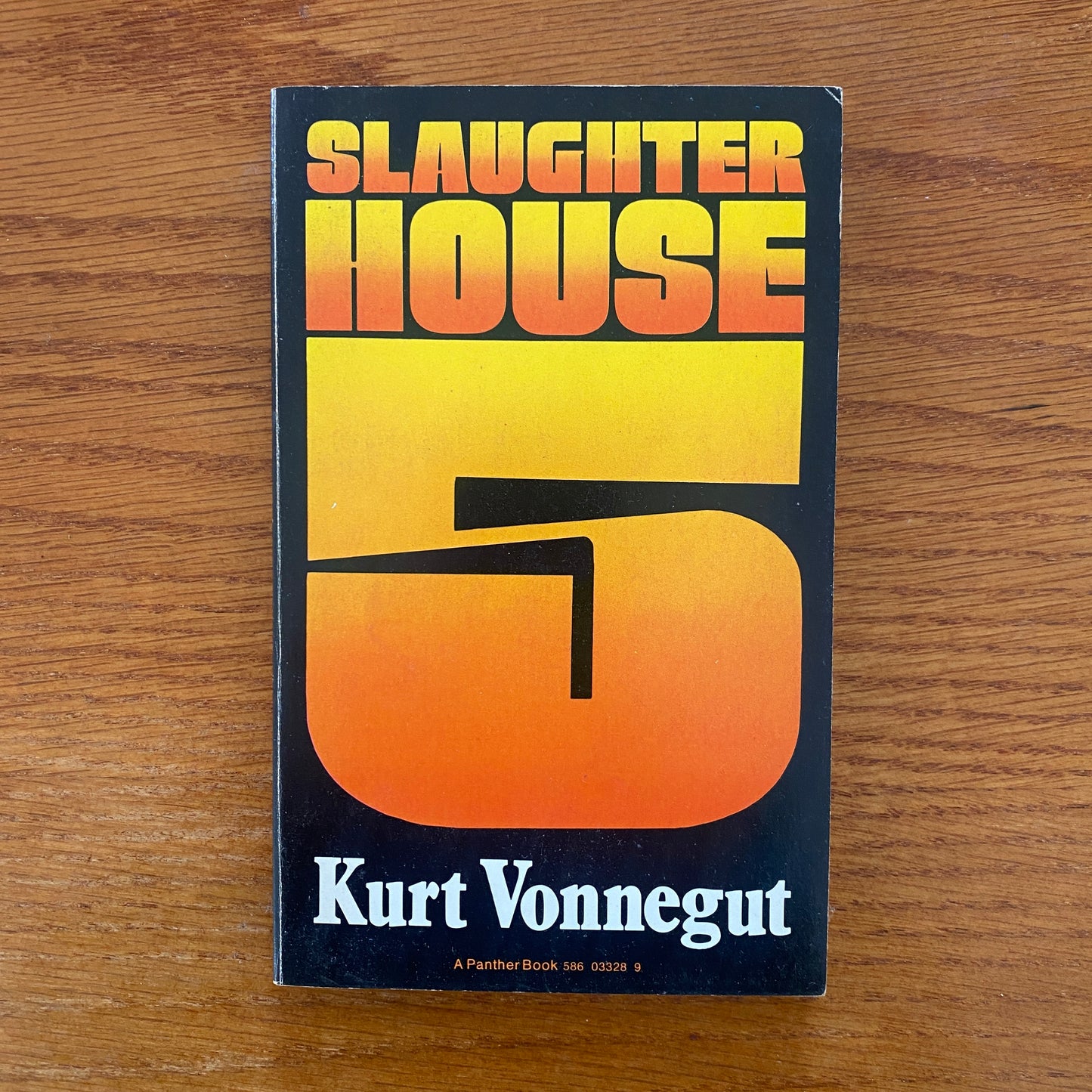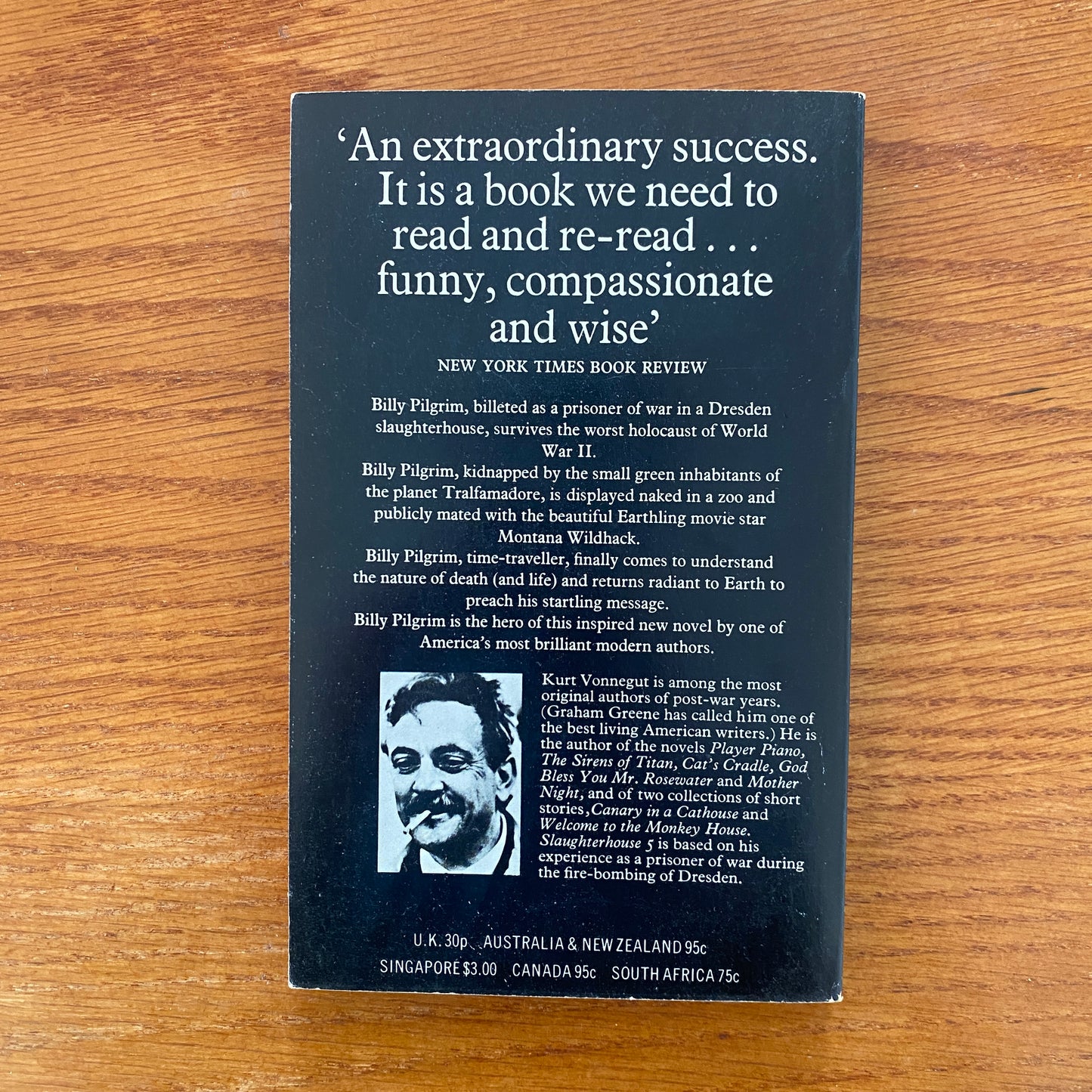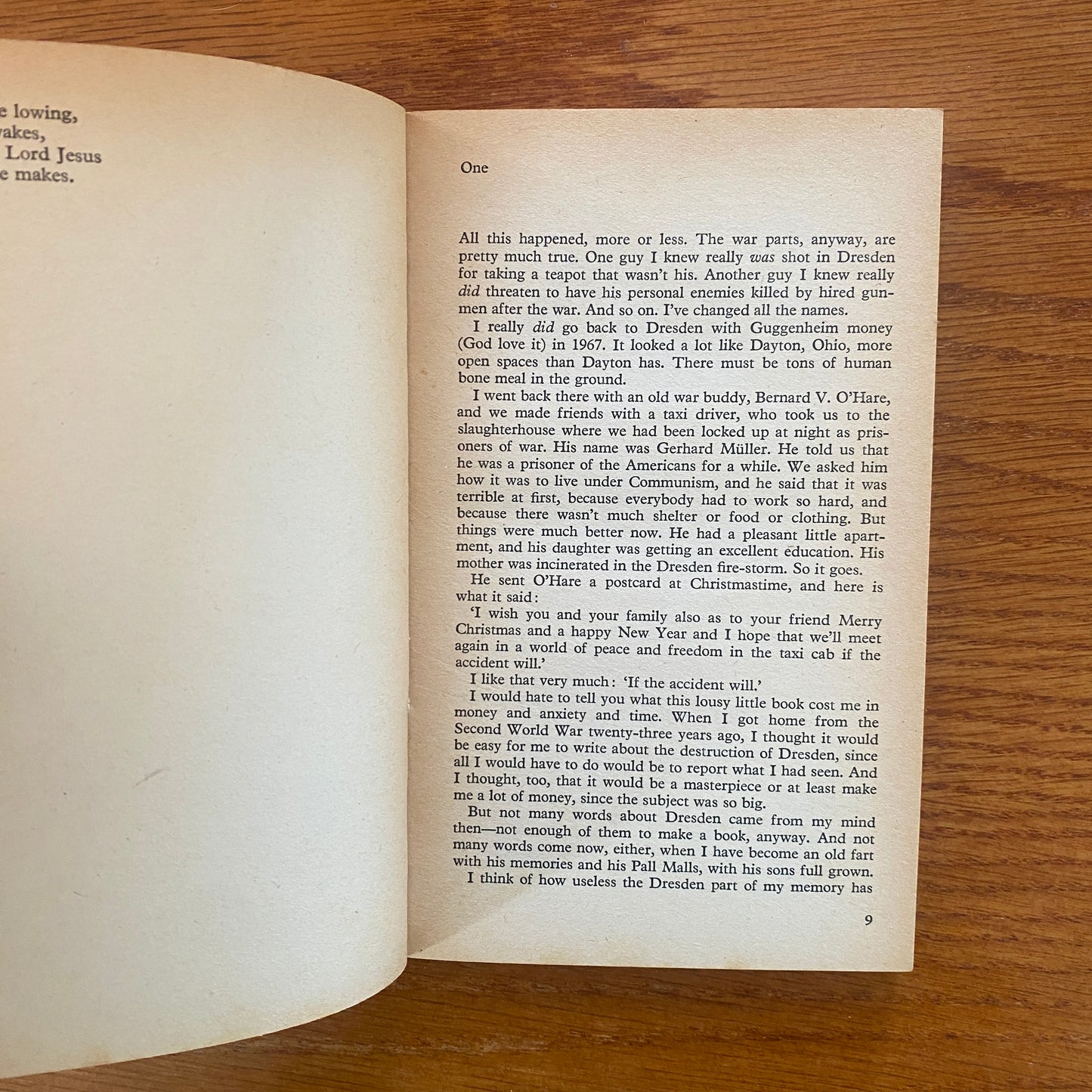Rumorbooks
Kurt Vonnegut - Slaughterhouse 5
Kurt Vonnegut - Slaughterhouse 5
Couldn't load pickup availability
"Slaughterhouse-Five," written by Kurt Vonnegut, is a highly influential and unconventional novel published in 1969. It is often classified as a satirical science fiction novel, although it defies easy categorization due to its unique narrative structure and themes. The novel is sometimes subtitled "The Children's Crusade: A Duty-Dance with Death."
The novel is a semi-autobiographical work that draws heavily from Vonnegut's own experiences as a soldier during World War II. The story follows the life of the protagonist, Billy Pilgrim, who becomes "unstuck in time." This means that Billy experiences events from his life in a nonlinear, time-traveling manner. He can move back and forth in his own life, revisiting moments of his past and glimpsing moments of his future.
Billy Pilgrim's experiences during the war, particularly his time as a prisoner of war in the German city of Dresden during the Allied bombing raids, are central to the novel. The bombing of Dresden serves as a focal point for the novel's anti-war message, as Vonnegut uses it to highlight the senselessness and destruction of war.
The novel combines elements of science fiction, satire, and dark humor to explore the absurdity of war and the human condition. Vonnegut uses Billy Pilgrim's time-traveling experiences to comment on the inevitability of death, the futility of human conflict, and the idea that free will may be an illusion.
"Slaughterhouse-Five" is known for its nontraditional narrative structure, its anti-war and anti-establishment themes, and its biting humor. It's considered one of Vonnegut's most significant works and a classic of 20th-century American literature. The novel has been adapted into various forms of media, including a film and a graphic novel, and it continues to be studied and celebrated for its innovative storytelling and thought-provoking content.
Some foxing on first few pages.
Share






